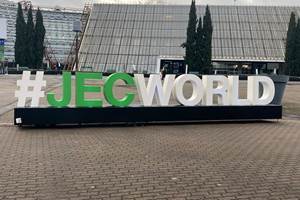BlueRebirth Council to build automotive recycling value chain
Six Japanese companies, including Toray Industries, are committed to realizing a true car-to-car recycling system, building know-how via projects, industry collaboration to achieve a stable recycled materials supply.
The BlueRebirth Council’s vision for 2035. Source | BlueReBirth Council
Japan-based Denso Corp. (Kariya), Toray Industries Inc. (Tokyo), Nomura Research Institute Ltd. (Tokyo), Honda Motor Co. Ltd. (Tokyo) Matec Inc. (Hokkaido) and Rever Corp. (Osaka) announce the establishment of the . Initiated by these six companies, the council aims to build a manufacturing and recycling integrated value chain to realize car-to-car recycling, starting with automated precision dismantling (leveraging robotics and AI-based recognition and decision-making technologies), which will efficiently disassemble end-of-life vehicles (ELVs) for material recovery and recycling.
In recent years, the automotive industry has sought to transition to a circular economy to help realize a sustainable society, taking on the significant challenge of reducing natural resource consumption by expanding the use of recycled materials. However, the mainstream global method remains shredding ELVs followed by material sorting, which the council says makes it very difficult to secure high-purity recycled materials.
Furthermore, collaboration between manufacturing and recycling industries has not been sufficient, and as a result, initiatives to use recycled materials as automotive components — which require both high quality standards and adequate supply volumes for mass production — have not progressed. In addition, the automotive recycling industry faces challenges in promoting automation and digitalization and in addressing worker shortages by improving workplace environments.
The newly established BlueRebirth Council aims to address these challenges and, looking ahead to 2035, evolve the automotive recycling industry into a “recycled materials manufacturing industry” that plays a key role as part of a new resource-circulating value chain within the automotive industry. Through these efforts, the companies behind the council are committed to realizing a true car-to-car recycling system — as in, returning all auto parts to raw materials, using them in new vehicle production and creating a closed-loop recycling system.
As specific initiatives, the council will engage in discussions and research, as well as advance technology development and demonstration projects together with participating companies, research institutions and other stakeholders, starting with the automated precision dismantling of ELVs, to build a manufacturing and recycling integrated value chain. In addition, the council will make recommendations to relevant companies and organizations.
Automated precision dismantling is an advanced intelligent system that uses AI and sensor technologies to enable robots to operate along the optimal path, even for deformed parts. This not only ensures the quality and volume of recycled materials that are difficult to achieve with conventional methods, but also contributes to fundamentally solving worker shortages.
Furthermore, by recording information such as material provenance and environmental impact on a digital platform and sharing it across the manufacturing and recycling value chain, the Rebirth Council can ensure a reliable and stable supply of recycled materials.
Related Content
McLaren develops aerospace-inspired ART method for volume composite super car engineering
Automated rapid tape (ART) technique, already deployed at the MCTC and to be used for future McLaren models, is capable of producing lighter, stiffer and stronger carbon fiber structures with less waste.
Read MoreThermoplastic composites: Cracking the horizontal body panel nut
Versatile sandwich panel technology solves decades-long exterior automotive challenge.
Read MoreTPI manufactures all-composite Kenworth SuperTruck 2 cab
Class 8 diesel truck, now with a 20% lighter cab, achieves 136% freight efficiency improvement.
Read MoreJEC World 2024 highlights: Glass fiber recycling, biocomposites and more
CW technical editor Hannah Mason discusses trends seen at this year’s JEC World trade show, including sustainability-focused technologies and commitments, the Paris Olympics amongst other topics.
Read MoreRead Next
Moving toward sustainable automotive parts manufacturing
How can the automotive supply chain prepare for future sustainability requirements? Tier 1 Kautex Textron discusses emissions reduction, design for circularity and transition to recycled/bio-based plastics.
Read MoreBcomp, SFG Composites to scale up automotive flax fiber
Bcomp natural fiber reinforcements are to be integrated into SFG compression molded technology and manufacturing processes, clearing the way for continued support in vehicle design.
Read MoreMateri’act launches NAFILean Vision biocomposite
NAFILean materials family blends low-carbon recycled plastics and renewable post-consumer sources like hemp fibers to provide a sustainable, visually appealing solution for automotive parts.
Read More












